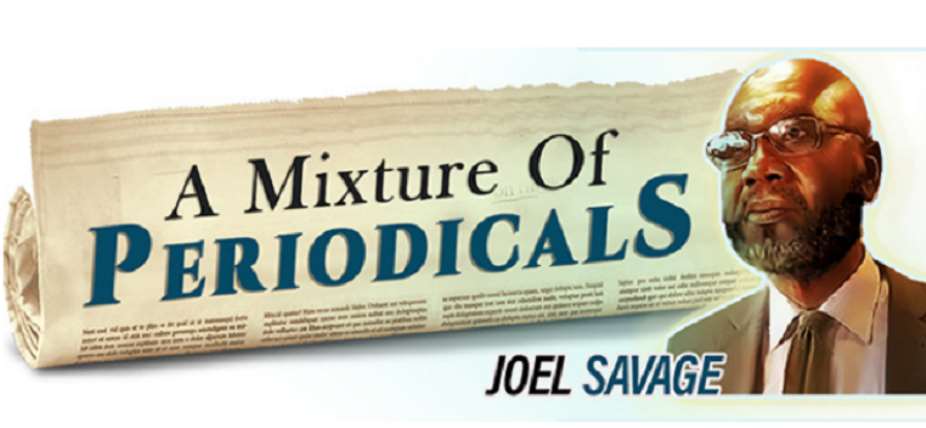When all of Ghana's major rivers and the surrounding ecosystem have been damaged by illegal mining, and the prospect of the collapse of the country's cocoa industry persists, how serious are Ghanaians when nothing is being done to stop the situation? The European Union currently views Ghanaian cocoa as dangerous for consumption due to environmental risks, thus, it is time for the government to take the fight against illicit mining in the nation seriously to prevent the collapse of the cocoa industry.
Ghana exports cocoa to the European Union market, but environmentalists and officials in Europe believe that the country's current intensive cocoa tree cultivation practices are extremely unsustainable and harmful to the environment, causing everything from soil degradation to biodiversity loss. Additionally, harmful chemicals, like cyanide, that are often produced through illegal mining end up in water bodies in cocoa-growing areas.
The European Union is upset about this and wants to stop purchasing cocoa beans from Ghana. Belgium is one of the countries in the EU that uses a lot of cocoa beans from Africa to make chocolate, soap, drinks, and other consumer goods, thus, a prohibition on the export of coffee and cocoa from Ghana is now conceivable shortly due to new laws that have been implemented in Europe. This means that the nation will suffer if the illegal mining problems are not resolved.
"Water contamination with cyanide, mercury, or other dangerous chemicals is transmitted through the food chain, and if a shipment of cocoa is delivered in Europe, for example, Belgium, they can ban our export of cocoa when they check and find any traces of such substances. Our export revenues are in doubt due to the possibility that cyanides and other hazardous compounds will find their way into our items that we sell overseas,” Mr. Owusu Akoto, the former Minister of Food and Agriculture, stated.
In the meantime, if the negative aspects, such as the environmental damage brought on by mining and extensive cocoa production, are not addressed, the European Union has threatened to place limitations on Ghana's and Ivory Coast's cocoa exports to the ports of its member countries. The European Union used satellite imagery to make its conclusion; nearly all of Ghana's area, for instance, is colored red, indicating land degradation.
Currently, hundreds of thousands of tons of coffee and cocoa beans are going to be destroyed by the European Union because they broke environmental standards. The Financial Times reports that a significant amount of coffee and cocoa beans kept in European Union warehouses could be destroyed because their production violates new environmental standards in the EU. This relates to the new law that the European Union enacted in June to curb the degradation of forests.
Specifically, it forbids the selling of natural rubber, coffee, and cocoa beans made in regions acquired through unlawful or unapproved deforestation, primarily in Africa, Asia, and Latin America, within the European Union. Leading global commodities exchanges, the World Trade Center and the Intercontinental Exchange (ICE) have already issued warnings stating that certain coffee and cocoa kept in EU warehouses had to be either sold outside the EU or destroyed before the transition period ending in December 2024.
The ICE claims that there are currently 150 thousand tons of cocoa beans and 200 thousand tons of coffee beans kept in EU warehouses. It is unknown how many of these were made without adhering to environmental regulations. According to the Financial Times, Ivory Coast and Ghana, two African nations with severe problems with child labor and illicit deforestation, produce 70% of the world's cocoa beans.
The countries that produce the most coffee worldwide are Brazil, Vietnam, Colombia, and Indonesia; Environmentalists have concerns about these countries' practices regarding deforestation.
The illicit mining that is occurring in Ghana has been the subject of much discussion without any solution, due to the involvement of politicians in powerful positions. However, this has to stop sooner rather than later since, in addition to ruining Ghana's eco-systems, the EU's boycott of cocoa purchases puts the nation's already precarious economy and advancements in jeopardy.





 ‘We’ll appeal denied application seeking to compel Akufo-Addo to act on anti-LGB...
‘We’ll appeal denied application seeking to compel Akufo-Addo to act on anti-LGB...
 ‘I’ll refocus Ghana’s natural resource management for greater benefit if elected...
‘I’ll refocus Ghana’s natural resource management for greater benefit if elected...
 Debating you not Mahama's top priority, fix economy first — Mahama’s Aide tells ...
Debating you not Mahama's top priority, fix economy first — Mahama’s Aide tells ...
 No chief in Anomabo has been jailed – Traditional Council debunk reports
No chief in Anomabo has been jailed – Traditional Council debunk reports
 EC’s stolen BVR kits, laptops: One granted bail, three on remand
EC’s stolen BVR kits, laptops: One granted bail, three on remand
 Bawumia must be truthful with the people of Eastern Region on his campaign tour,...
Bawumia must be truthful with the people of Eastern Region on his campaign tour,...
 Man Diesel fuel tanker explodes on Kumasi-Accra highway
Man Diesel fuel tanker explodes on Kumasi-Accra highway
 “Stand and greet me”: Ban all NPP activities on your land until Akufo-Addo apolo...
“Stand and greet me”: Ban all NPP activities on your land until Akufo-Addo apolo...
 Akufo-Addo’s arrogant attitude and utterances give much cause for concern — Maha...
Akufo-Addo’s arrogant attitude and utterances give much cause for concern — Maha...
 Jesus Christ died for people in his era, not for me – Osofo Kyiri Abosom
Jesus Christ died for people in his era, not for me – Osofo Kyiri Abosom
